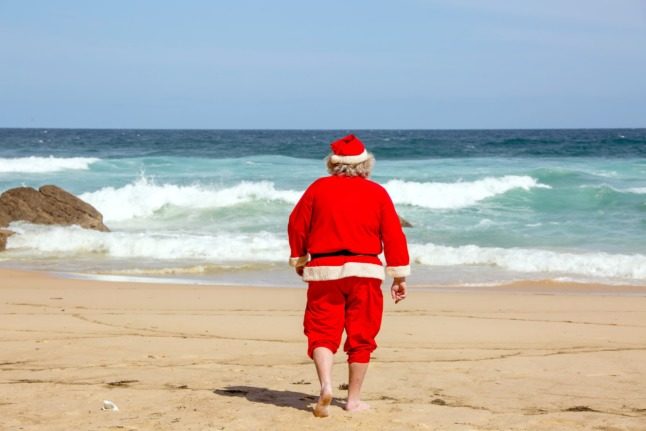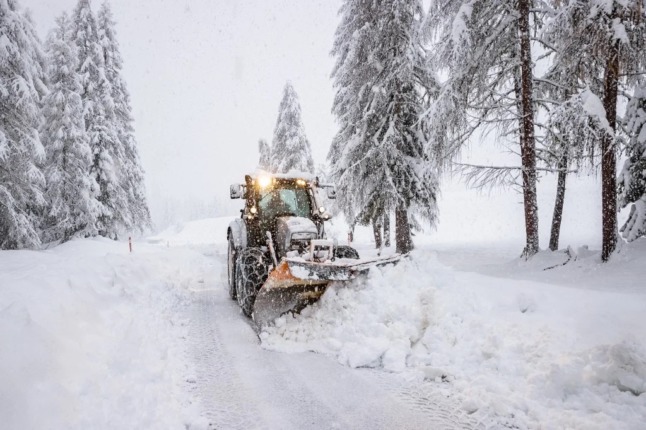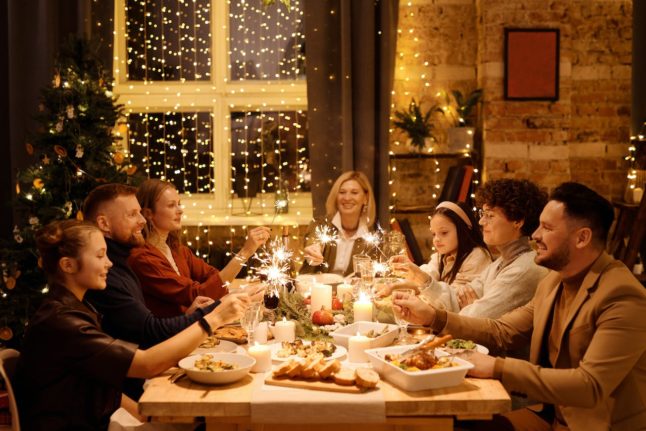The good news is that if you celebrating Christmas in the mountains at the altitude of over 1,500 metres, you will have plenty of snow. You can dash in a one-horse open sleigh, ski, or engage in other winter sports.
Most of the lowlands, however, will not look quite like a winter wonderland.
There would have to be at least one centimetre of snow at 7am on December 24th, 25th or 26th to make it a white Christmas, but the chances are not looking good right now, according to weather forecasts.
On Christmas Eve, Switzerland will probably find itself on the edge of an Atlantic low in the area of a mild south-westerly current. On Christmas Day, this low should come closer, bringing a warm southerly wind to the Alps.
The snow line will rise to over 1,500 meters, according to Meteonews meteorologist Klaus Marquardt.
The wind may bring the temperatures up to 15 degrees in some areas like the the Rhine valley, and Marquardt also expects double-digit temperatures in the lowlands.
“It is very unlikely that we will have a white Christmas in the lowlands,” he concluded.
However, the development of weather is dynamic and not set in stone, so there may still be a chance of a meteorological Christmas miracle.
These are Swiss regions with most chance of snow, based on history.
Meteonews analysis shows St. Gallen had most ‘white Christmases’ in the last 20 years: 11 (55 percent). In Chur (GR) there were seven (35 percent), in Bern and Zurich six (30 percent) and in Lugano four (20 percent).
In Aarau and Basel there was snow at Christmas only three times over the last two decades (15 percent), and twice in Lucerne and Geneva (10 percent).
The largest amount of snow (32 centimetres) fell in 2001 in St. Gallen and in 2011 (30 centimetres) in Chur.
Overall, white Christmas has only occurred sporadically since 2011. Whether this is a coincidence or because of global warming cannot be answered because 10 years is not enough time to draw scientific conclusions.
However, Meteonews assumes that a picture-perfect white Christmas will become increasingly rare in the lowlands.

Could this be the future of Christmas? Photo by Lynda Hinton on Unsplash



 Please whitelist us to continue reading.
Please whitelist us to continue reading.
Member comments